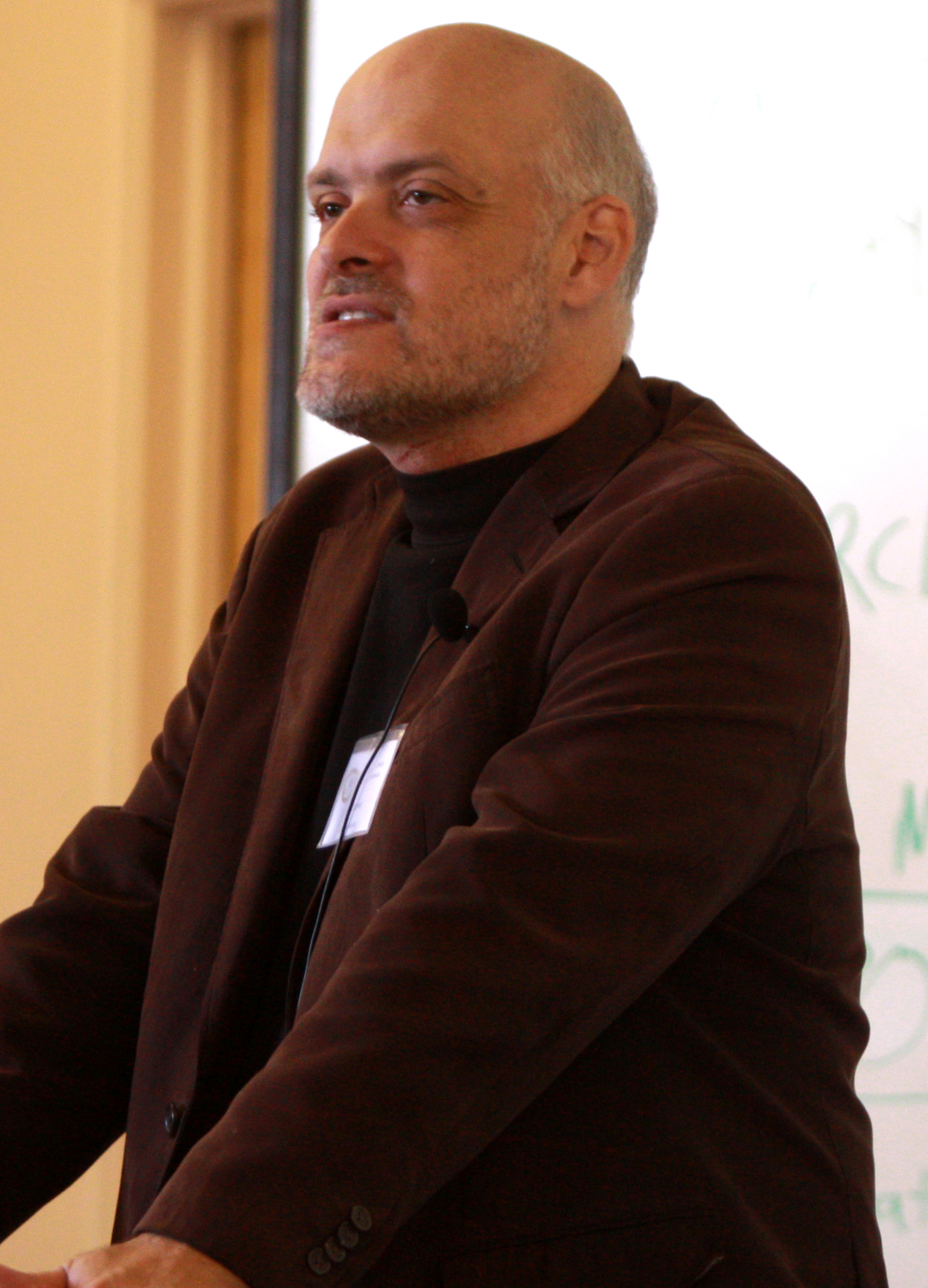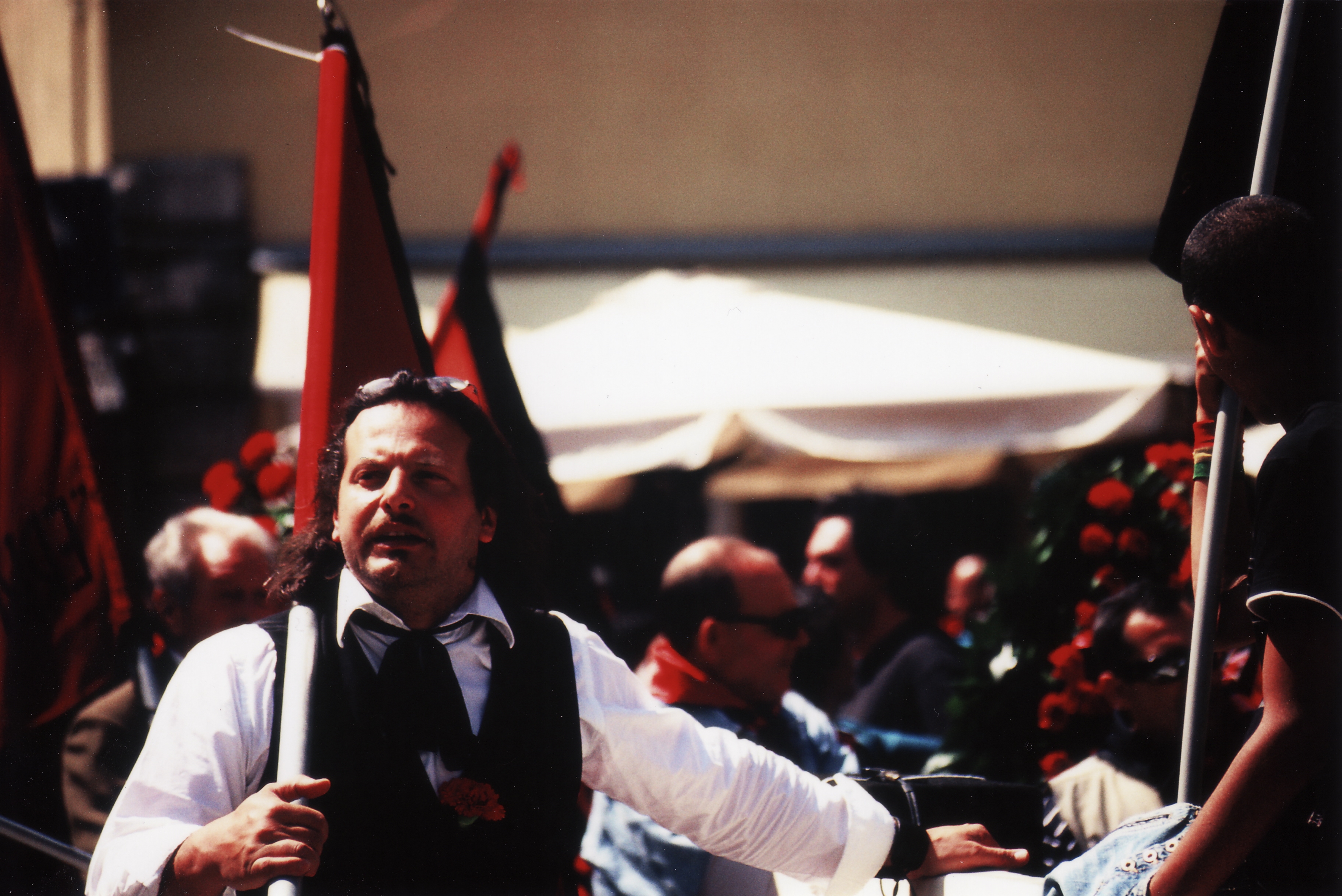|
François Béranger
François Béranger (; August 28, 1937, Amilly, Loiret – October 14, 2003) was a French singer and left libertarian. Life and Career Béranger was born in Amilly, Loriet, and was the oldest of 4 children. His mother, Jeanne was a seamstress and his father, André was a member of parliament for the Popular Republican Movement. Later, André was demobilized, and the family moved to a private mansion in Boulonge. Béranger began making music in the 1960s, influenced by realistic music and working-class culture. He took part in the revolts of May 68, and wrote protest songs such as ''L'alternative'', ''Participe Présent'', ''Rachel'', and ''Tranche de Vie''. Béranger's body was buried at the Juvénal cemetery in Castelnau-le-Lez. Selected filmography * 1973 : ''L'An 01 The Year 01 () is a French comedy film, directed by Jacques Doillon, Alain Resnais and Jean Rouch released in 1973. It is based on the eponymous comic strip by Gébé and has gained cult film status. Synopsi ... [...More Info...] [...Related Items...] OR: [Wikipedia] [Google] [Baidu] |
Amilly, Loiret
Amilly ( or ) is a commune and town in the Loiret department in north-central France. Population Sights * Church of St. Martin (16th century) * Castles of Varenne (16th century) and of the Bourgoins (18th century) * Bardin Watermill * Museum of Folk Art Twin towns * Nordwalde Nordwalde (literally: north woods) is a municipality in the Steinfurt (district), district of Steinfurt, in North Rhine-Westphalia, Germany. Geography It is situated in the Münsterland area, approximately 12 km south-east of Steinfurt and 2 ..., Germany * Vilanova del Camí, Spain * Calcinaia, Italy Climate References External links www.amilly.com Official site Communes of Loiret {{Loiret-geo-stub ... [...More Info...] [...Related Items...] OR: [Wikipedia] [Google] [Baidu] |
Left-libertarianism
Left-libertarianism, also known as left-wing libertarianism, is a political philosophy and type of libertarianism that stresses both individual freedom and social equality. Left-libertarianism represents several related yet distinct approaches to political and social theory. Its classical usage refers to anti-authoritarian varieties of left-wing politics such as anarchism, especially social anarchism. While right-libertarianism is widely seen as synonymous with libertarianism in the United States, left-libertarianism is the predominant form of libertarianism in Europe. In the United States, left-libertarianism is the term used for the left wing of the American libertarian movement, including the political positions associated with academic philosophers Hillel Steiner, Philippe Van Parijs, and Peter Vallentyne that combine self-ownership with an Egalitarianism, egalitarian approach to natural resources. Although libertarianism in the United States has become associated with classi ... [...More Info...] [...Related Items...] OR: [Wikipedia] [Google] [Baidu] |
Popular Republican Movement
The Popular Republican Movement (, MRP) was a Christian-democratic political party in France during the Fourth Republic. Its base was the Catholic vote and its leaders included Georges Bidault, Robert Schuman, Paul Coste-Floret, Pierre-Henri Teitgen and Pierre Pflimlin. It played a major role in forming governing coalitions, in emphasizing compromise and the middle ground, and in protecting against a return to extremism and political violence. It played an even more central role in foreign policy, having charge of the Foreign Office for ten years and launching plans for the creation of the European Coal and Steel Community, which grew into the European Union. Its voter base gradually dwindled in the 1950s and it had little power by 1954. History Origins of French Christian Democracy In the late 19th century secular forces sought to radically reduce the power of the Catholic Church in France, especially regarding schools. The Catholic bishops mistrusted the Republic ... [...More Info...] [...Related Items...] OR: [Wikipedia] [Google] [Baidu] |
May 68
May 68 () was a period of widespread protests, strikes, and civil unrest in France that began in May 1968 and became one of the most significant social uprisings in modern European history. Initially sparked by student demonstrations against university conditions and government repression, the movement quickly escalated into a nationwide general strike involving millions of workers, bringing the country to the brink of revolution. The events have profoundly shaped French politics, labor relations, and cultural life, leaving a lasting legacy of radical thought and activism. After World War II, France underwent rapid modernization, economic growth, and urbanization, leading to increased social tensions. (The period from 1945 to 1975 is known as the ''Trente Glorieuses'', the "Thirty Glorious Years", but it was also a time of exacerbated inequalities and alienation, particularly among students and young workers.) By the late 1960s, France's university system was struggling to a ... [...More Info...] [...Related Items...] OR: [Wikipedia] [Google] [Baidu] |
Castelnau-le-Lez
Castelnau-le-Lez (; ) is a commune in the Hérault department in the Occitanie region of Southern France. Located on the outskirts of Montpellier, it is situated around 3 km (1.8 mi) north of the city centre. Geography Castelnau-le-Lez is served by Line 2 of the Montpellier tramway. Population History Hundreds of Jewish children were hidden in the town of Castelnau-le-Lez during the Holocaust. Almost every home hid children, in some cases from multiple families. After the war, the children whose parents had survived were returned to them. The people of the town and the local priest were well aware of the situation and, at least tacitly, supported it. Twin towns Castelnau-le-Lez is twinned with: * Plankstadt, Germany * Argenta, Emilia–Romagna, Italy * San Fernando de Henares, Spain See also *Communes of the Hérault department A commune is an alternative term for an intentional community. Commune or comună or comune or other derivations may also refe ... [...More Info...] [...Related Items...] OR: [Wikipedia] [Google] [Baidu] |
L'An 01
The Year 01 () is a French comedy film, directed by Jacques Doillon, Alain Resnais and Jean Rouch released in 1973. It is based on the eponymous comic strip by Gébé and has gained cult film status. Synopsis The film narrates a utopian abandonment, consensual and festive of the market economy and high productivity. The population decides on a number of resolutions, beginning with "Let's stop everything," and the second "After a period of total stoppage, let's bring back — reluctantly — just the services and products we can't do without. Probably : water to drink, electricity for reading at night, the radio to say 'This is not the end of the world, this is Year 1, and now a page of Celestial Mechanics." The implementation of these resolutions is the first day of a new era, Year 1. ''L'An 01'' is emblematic of the challenge of the 1970s and covers such diverse topics as ecology, negation of authority, free love, communal living, rejection of private property and labor. Cast ... [...More Info...] [...Related Items...] OR: [Wikipedia] [Google] [Baidu] |
1937 Births
Events January * January 1 – Anastasio Somoza García becomes President of Nicaragua. * January 5 – Water levels begin to rise in the Ohio River in the United States, leading to the Ohio River flood of 1937, which continues into February, leaving 1 million people homeless and 385 people dead. * January 15 – Spanish Civil War: The Second Battle of the Corunna Road ends inconclusively. * January 23 – Moscow Trials: Trial of the Anti-Soviet Trotskyist Center – In the Soviet Union 17 leading Communists go on trial, accused of participating in a plot led by Leon Trotsky to overthrow Joseph Stalin's regime, and assassinate its leaders. * January 30 – The Moscow Trial initiated on January 23 is concluded. Thirteen of the defendants are Capital punishment, sentenced to death (including Georgy Pyatakov, Nikolay Muralov and Leonid Serebryakov), while the rest, including Karl Radek and Grigory Sokolnikov are sent to Gulag, labor camps and later murdered. They were i ... [...More Info...] [...Related Items...] OR: [Wikipedia] [Google] [Baidu] |
2003 Deaths
This is a list of lists of deaths of notable people, organized by year. New deaths articles are added to their respective month (e.g., Deaths in ) and then linked below. 2025 2024 2023 2022 2021 2020 2019 2018 2017 2016 2015 2014 2013 2012 2011 2010 2009 2008 2007 2006 2005 2004 2003 2002 2001 2000 1999 1998 1997 1996 1995 1994 1993 1992 1991 1990 1989 1988 1987 1986 Earlier years ''Deaths in years earlier than this can usually be found in the main articles of the years.'' See also * Lists of deaths by day * Deaths by year (category) {{DEFAULTSORT:deaths by year ... [...More Info...] [...Related Items...] OR: [Wikipedia] [Google] [Baidu] |
People From Loiret
The term "the people" refers to the public or common mass of people of a polity. As such it is a concept of human rights law, international law as well as constitutional law, particularly used for claims of popular sovereignty. In contrast, a people is any plurality of persons considered as a whole. Used in politics and law, the term "a people" refers to the collective or community of an ethnic group or nation. Concepts Legal Chapter One, Article One of the Charter of the United Nations states that "peoples" have the right to self-determination. Though the mere status as peoples and the right to self-determination, as for example in the case of Indigenous peoples (''peoples'', as in all groups of indigenous people, not merely all indigenous persons as in ''indigenous people''), does not automatically provide for independent sovereignty and therefore secession. Indeed, judge Ivor Jennings identified the inherent problems in the right of "peoples" to self-determination, as i ... [...More Info...] [...Related Items...] OR: [Wikipedia] [Google] [Baidu] |
French Anarchists
Anarchism in France can trace its roots to thinker Pierre-Joseph Proudhon, who grew up during the Restoration and was the first self-described anarchist. French anarchists fought in the Spanish Civil War as volunteers in the International Brigades. According to journalist Brian Doherty, "The number of people who subscribed to the anarchist movement's many publications was in the tens of thousands in France alone." History The origins of the modern anarchist movement lie in the events of the French Revolution, which the historian Thomas Carlyle characterized as the "open violent Rebellion, and Victory, of disimprisoned Anarchy against corrupt worn-out Authority". Immediately following the storming of the Bastille, the communes of France began to organize themselves into systems of local self-government, maintaining their independence from the State and organizing unity between communes through federalist principles. Direct democracy was implemented in the local districts of eac ... [...More Info...] [...Related Items...] OR: [Wikipedia] [Google] [Baidu] |
Deaths From Cancer In France
Death is the end of life; the Irreversible process, irreversible cessation of all biological process, biological functions that sustain a living organism. Death eventually and inevitably occurs in all organisms. The remains of a former organism normally begin to Decomposition, decompose shortly after death. Some organisms, such as ''Turritopsis dohrnii'', are Biological immortality, biologically immortal; however, they can still die from means other than Senescence, aging. Death is generally applied to whole organisms; the equivalent for individual components of an organism, such as Cell (biology), cells or Tissue (biology), tissues, is necrosis. Something that is not considered an organism, such as a virus, can be physically destroyed but is not said ''to die'', as a virus is not considered alive in the first place. As of the early 21st century, 56 million people die per year. The most common reason is aging, followed by cardiovascular disease, which is a disease that af ... [...More Info...] [...Related Items...] OR: [Wikipedia] [Google] [Baidu] |




